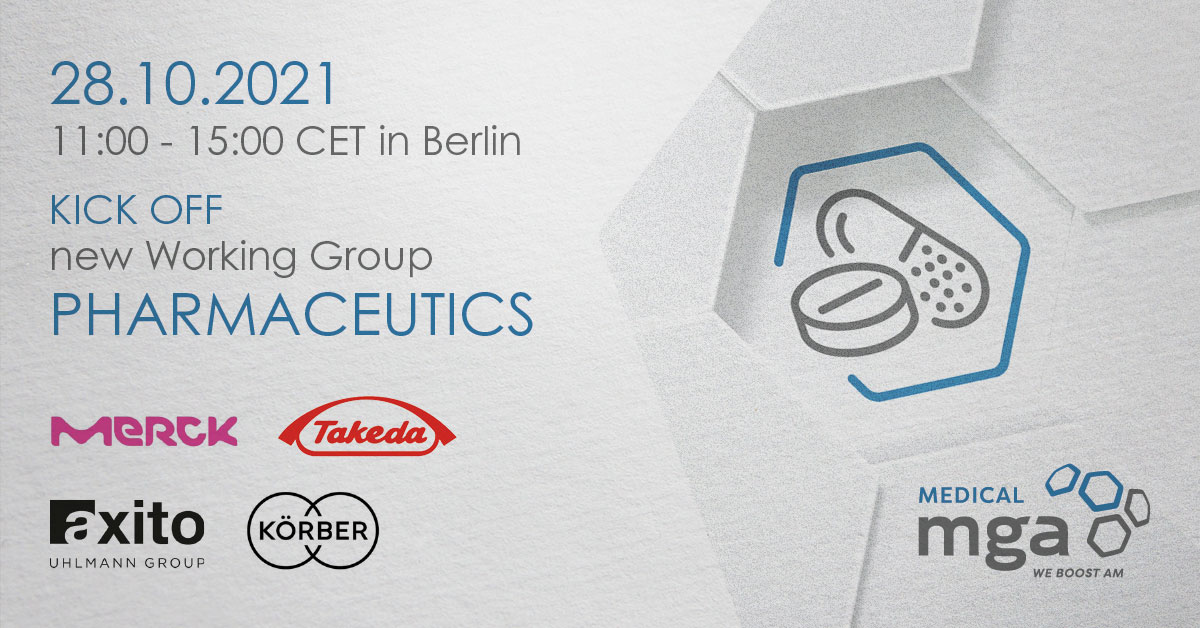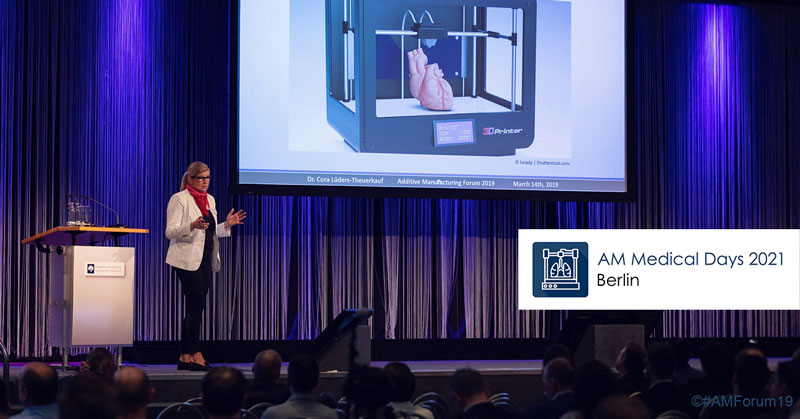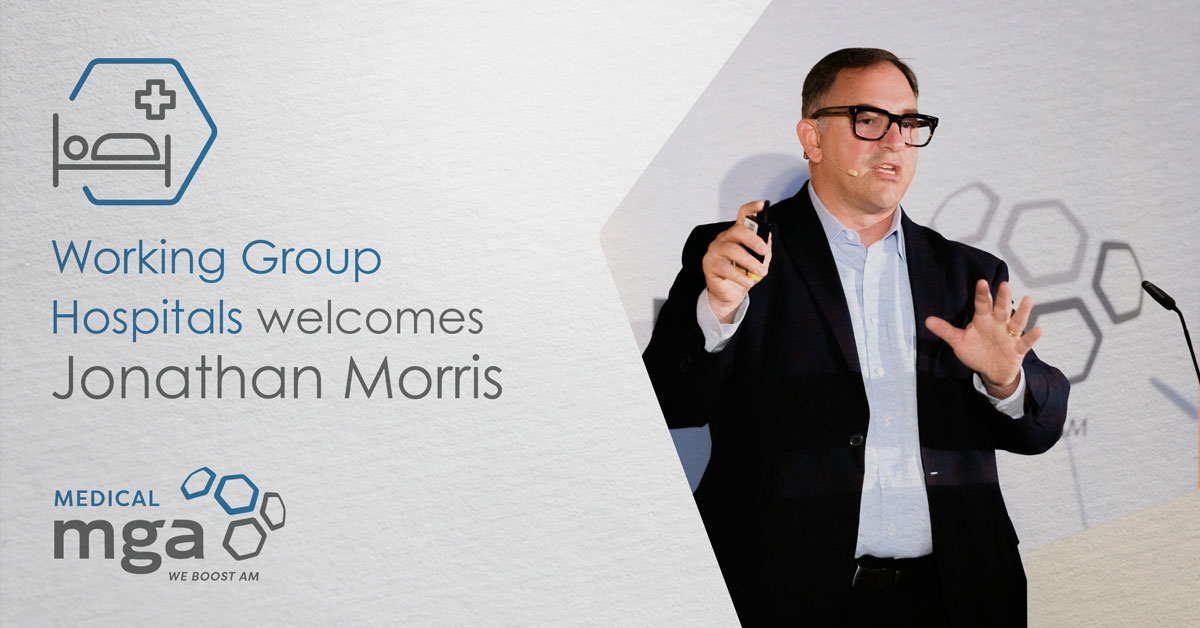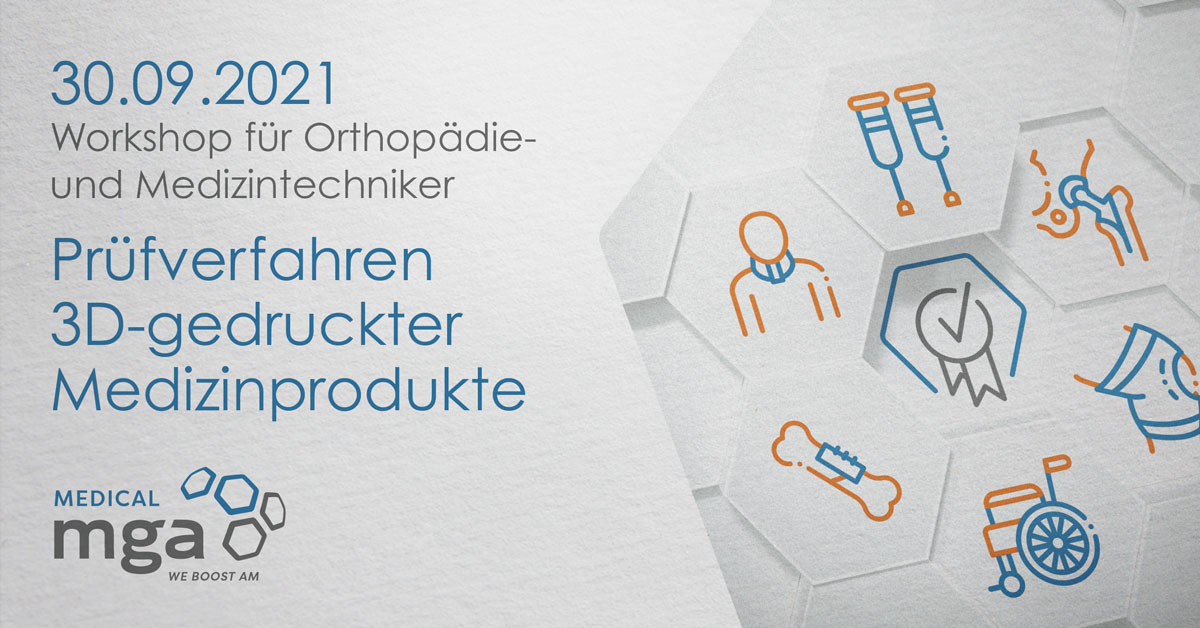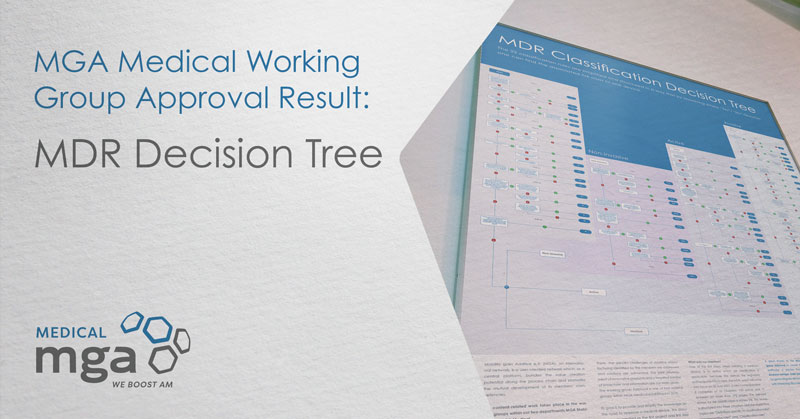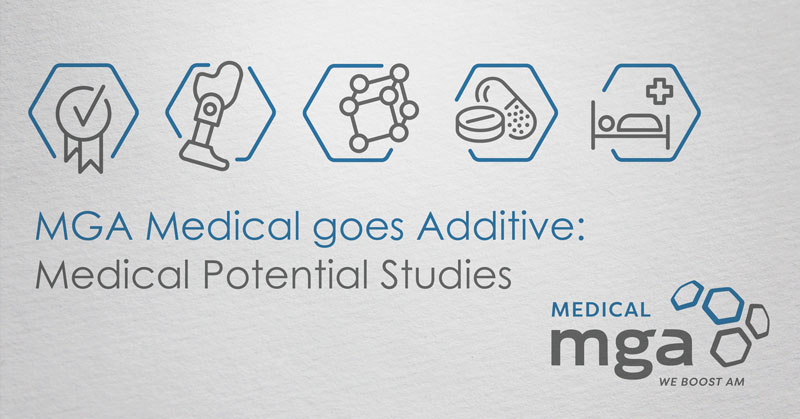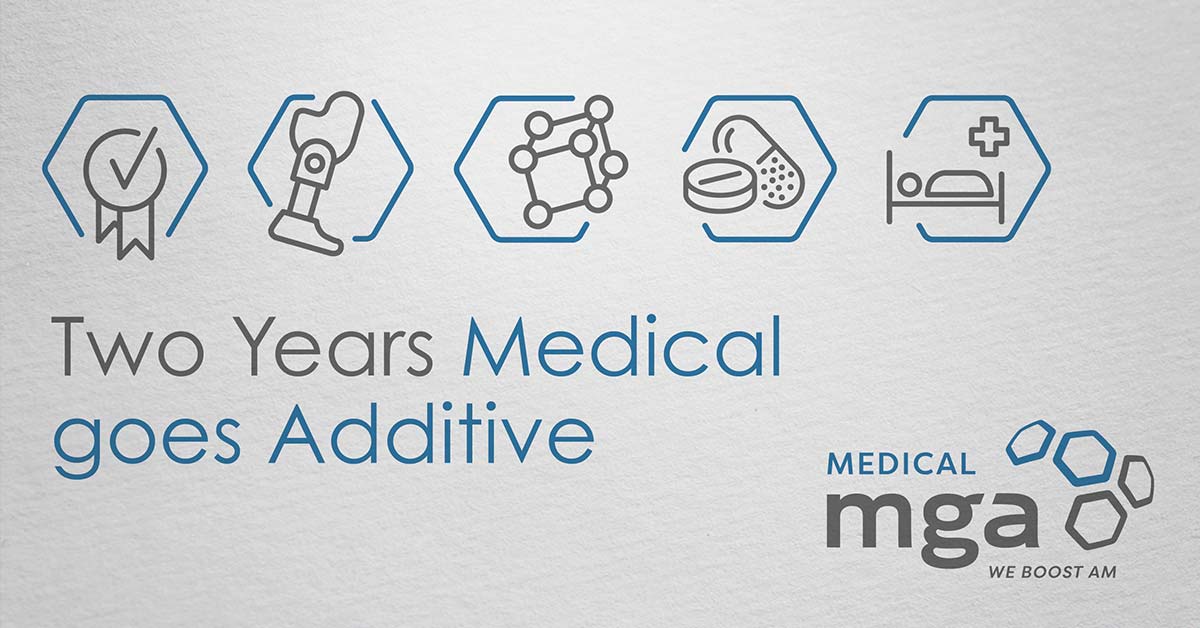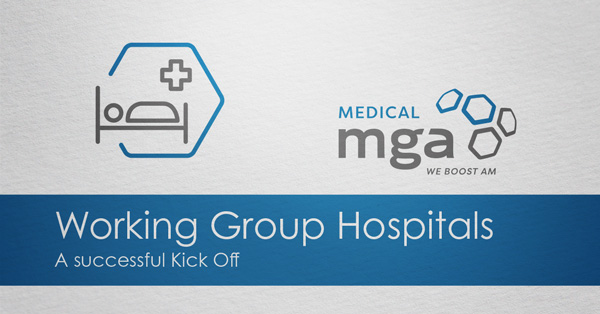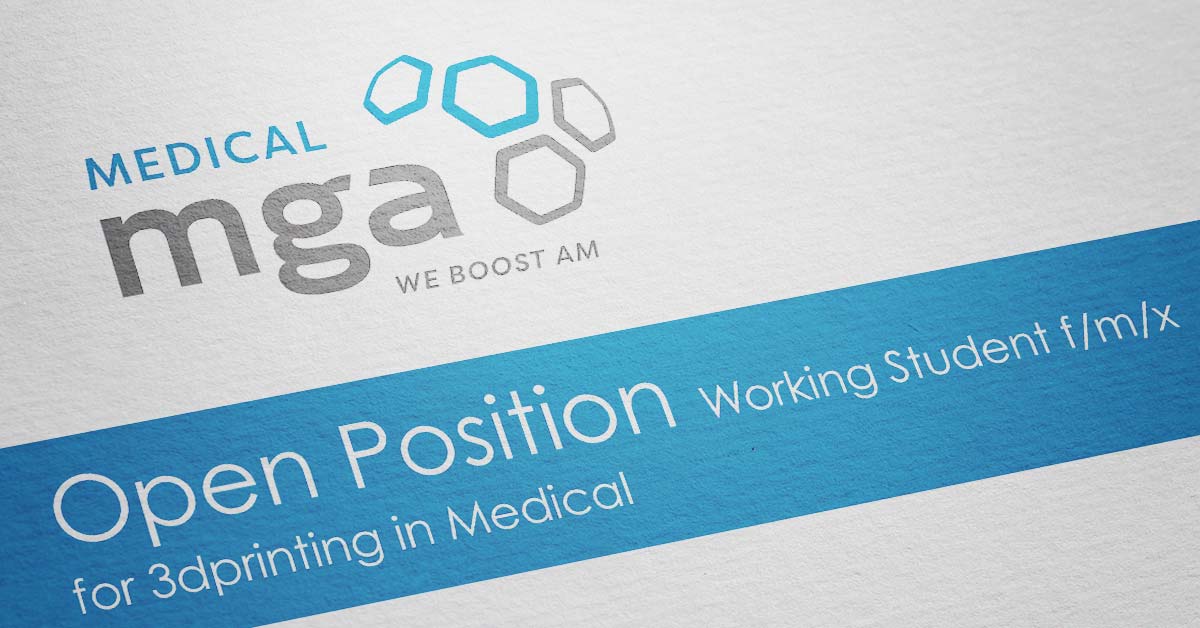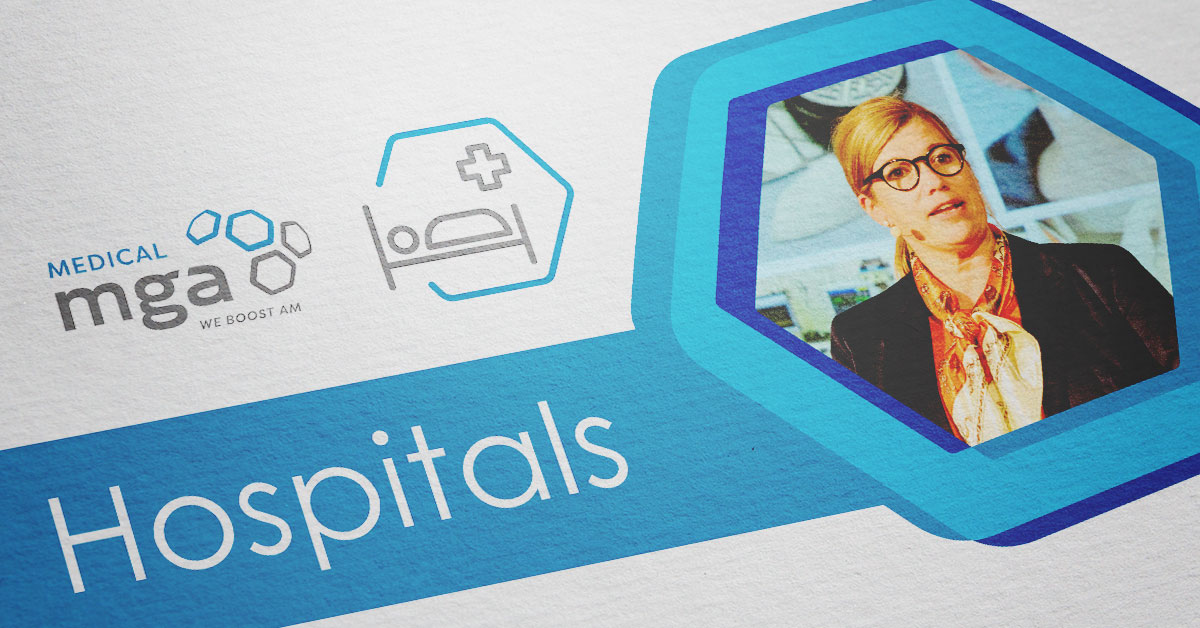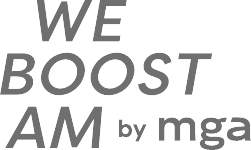Additive Manufacturing (AM) for pharmaceutical applications, parts and tools becomes more and more attractive due to its individualized production. Several pharmaceutical companies use this technology for spare and format parts or for personalized medications.
What is your experience regarding Additive Manufacturing in the field of pharmaceutics, development and optimization of medications, tools, spare parts and techniques, or training of employees?
We offer the international platform for meeting experts from leading pharmaceutical sector, for connecting and planning of joint projects and many other opportunities to further increase awareness of AM in pharmaceutical settings. PHARMACEUTICS is aimed at different fields of interests to bring them closer together via the common interface AM.
Leading experts from
Takeda
Merck
And suppliers such as
Marchesini
Syntegon
Körber
Uhlmann
and many others will participate in PHARMACEUTICS.
Within our network Medical goes Additive (MGA) we establish new ideas and find technical solutions for challenges for which there currently are none.
The result-oriented work is our top priority! Our aim: to lower the barriers for 3D printing in accordance with authorities and notified bodies and generate new business models plus economically optimized solutions.
We are very committed to involving all players in the value chain in order to open up the mindset for additive manufacturing. In MGA more than 130 members throughout the whole AM value chain are organized.
We look forward to your participation at our offices on October 28 2021 11:00 – 15:00 CET in the Marienpark in Berlin!
Please note that the kick off will be held as a pure “2G” (vaccinated, or recovered) event.
For more information and to join the working group, please contact Dr Cora Lüders-Theuerkauf.
